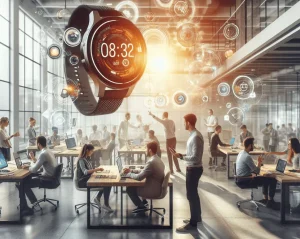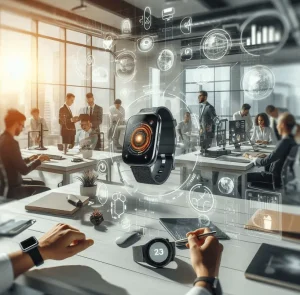“Mommy, where do Bitcoins come from?” Well, you see, when a shiny young Bitcoin catches the eyes of an ambitious miner, and because they love each other very much…
Wait, that’s obviously too difficult to solve here. Besides, my whole goal is to keep things simple. Anyway, Bitcoins are made by solving complex math problems. This is done by a powerful machine that is built to solve these math problems. This process is called mining. People who own these machines to make money mining Bitcoins are called miners. When a batch of problems is solved it becomes known as a block. Blocks are verified by other users and once they are verified, they get added to what is called the block chain. This chain continues to grow with a new block being added to it roughly every 10 minutes. This chain is really just a master ledger that will continue to grow and never end.
The very powerful machines that mine zap a lot of power and drive up the miner’s monthly utility bill. The reason it takes so much power is the genius of the mathematics involved. It requires the mining machine to perform complex cryptographic algorithms. Once a math problem is solved by the machine, a block of coins is birthed. Every time 210,000 blocks have been created, the reward to the miner is halved. It takes 4 years to accomplish this. So it’s kind of like a Bitcoin Olympics. Currently the block reward is 12 Bitcoins (on June 23, 2020 the reward will only be 6 coins). Those coins goes to the miner whose machine was the lucky lottery winner at that time. There is a winner every 10 minutes. There are also a lot of miners competing out there too. Said miner now has something of value. Mine enough coins and you pay your electricity bill and then some.
There is also another way to mine. It’s called cloud mining. With this type of mining you are paying to use someone else’s network and that cuts into your profits significantly. The positives to this method are that it doesn’t require using your electricity or even buying a machine.
Sounds good to me. I want to start mining now. Is it a good idea and can I generate passive income on a regular basis? Possibly. Hold tight for now and you can make that call later.
Let’s try to break this down.
Going back to the original way of machine mining, you’d have to start with buying a quality mining machine. That would set you back about $2,000. Here is a picture of a good machine (Antminer S9 from Bitmain) capable of creating a high hash rate of 14 TH/s. 1 TH/s is 1,000,000,000,000 hashes per second. This machine does 14 times that. That’s a lot of hashing power. A hash is just a really long number that the machine creates each time trying to solve the algorithm. Again, to use my lottery analogy, all these machines are out there hashing away hoping to be the next winner.
Then, your chances of winning are getting increasingly more difficult with more competition. Further complicating this matter is that each time a math problem is solved, the next problem gets incrementally more difficult to solve. The Bitcoin network difficulty changes roughly every two weeks or 2,016 blocks. The number of Bitcoins that will ever be created is finite. That number happens to be 21,000,000. Once we hit that number there can never be another Bitcoin mined again. However, the block chain itself will continue to expand because it is used to verify each transaction or purchase.
Remember that pseudonymous Satoshi Nakamoto I wrote about as well? Did you know that today’s math problems are more than 70,000 times more difficult for the machines to solve than they were we he mined the 1st Bitcoin back in 2009?! The estimate is that the final coin will be mined in 2140 because the system halves every four years (210,000 blocks). There have already been 16,400,000 coins mined (78%) and each coin from here on out will be mined at a much slower rate. Yes, you read that right. Basically 80% were mined in the first 8 years and it will take well over 100 years to mine the final 20%. If any of my great, great, great grandchildren are reading this I hope you are sitting pretty with our family’s Bitcoins now valued at 220,000 per Bitcoin. We can all dream right!
Buying a machine for mining or purchasing a mining cloud contract is risky. While there are some great success stories out there, be sure to research them thoroughly before deciding if mining is right for you. For every person making money, there are plenty of people losing money.
By the way, a great place to see all of the cryptocurrencies out there and their total coins and market cap, Coin Market Cap is a great resource. You can see all 700 plus fly-by-night altcoins out there. An altcoin is just another way of saying any cryptocurrency coin that isn’t Bitcoin. By now you probably know that Bitcoin is like the Rose Bowl, the Granddaddy of them all! I would really try to limit my focus and research on the top 10 for now. Not that there won’t be stories of success from one of the nearly worthless ones now. It’s just that finding one is like picking the right penny stock. Sticking with established companies that are being recognized by the mainstream analysts is a much safer play. The same goes for the exchange you use to buy, sell, and trade. That’s why I use Coinbase to make my trades as they are the most trusted, secure, and convenient exchange. They also have the most thorough vetting process when it comes to adding altcoins.
Here’s a recap of the key points from this article:
-Bitcoins are created from mining
-Mining is done by powerful machines that solve complex math problems. You can also purchase contracts called cloud mining if you don’t want to buy a machine.
-The problems get harder as coins are mined and the rate of production slows down
-As of May 2017, there are only 72 Bitcoins mined per hour (12 every 10 minutes)
-On June 23, 2020, this will be halved again down to only 6 created every 10 minutes
-Nearly 80% of Bitcoin’s finite number 21,000,000 coins have already been mined
-Competition among miners and increasingly complex math problems are making it more difficult to turn a profit mining
-The final coin is estimated to be mined in 2140






More Stories
Top Cryptocurrencies for 2018: What Are the Best Bitcoin Alternatives?
Short History of Bitcoin
Bitcoin Mining & Security, Part 2